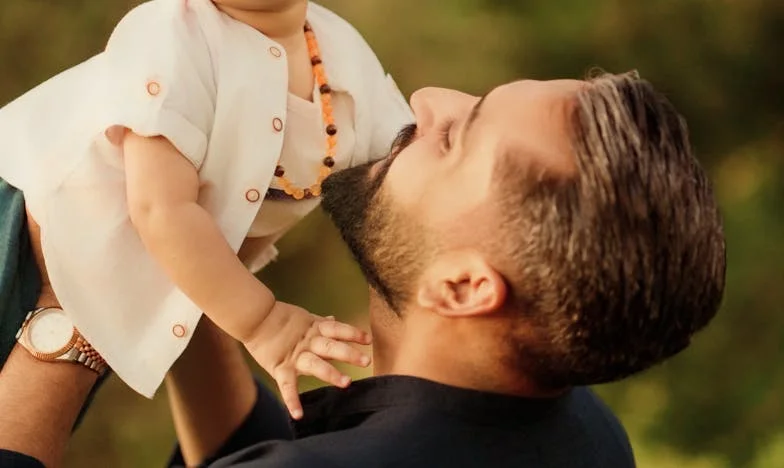Ten Years of Silence: Breaking the Chains of Addiction and Shame
“Enough silence!” Irena’s voice cracked like thunder, her palm slamming the kitchen table so hard the tea rattled in its cup. For a moment, the world shrank to that sound, echoing off the faded wallpaper and the chipped cabinets in her old New Jersey home. I sat across from her, my hands trembling as I raised the chipped mug to my lips. The hospital discharge paper, creased and smudged, lay between us like a loaded gun neither of us dared to touch.
I didn’t look up. I couldn’t. “What do you want from me?” My voice barely rose above a whisper, so thin I wondered if she heard it at all.
Irena’s eyes—so like mine, yet always harder, more determined—bored into me. “Ten years, Hanna. Ten years of your stunts, your lies, your disappearing acts. I covered for you with Mom, for the neighbors, even for your own son. And now you show up with this?” She jabbed a finger at the discharge paper. “A note from rehab. Like an excuse note from school?”
My hands shook harder. I set the mug down before I spilled anything. The silence that followed was thick and mean, pressing in on my chest like a vice. I stared at the paper, at my name in blocky, impersonal letters: HANNA GORDON. Discharged after 42 days. Opioid dependency. Prognosis: guarded.
I never meant for my life to become this. Yet here I was, at thirty-six, sitting in my sister’s kitchen with nothing but a garbage bag of clothes in the hallway and a heart full of shame. My son, Tommy, was staying with my mother. I hadn’t seen him in three months.
Irena stood up, pacing. “What happens now, Hanna? You can’t just waltz back in and expect everyone to forget. Tommy’s scared of you. Mom is exhausted. And me? I’m angry. I have every right to be.”
“I know,” I managed, my throat thick. “I… I’m not asking for forgiveness. I just—”
She cut me off. “Then what are you asking for?”
That question hung in the air. I didn’t even know myself. Did I want forgiveness? A second chance? Or just somewhere to crash that wasn’t a shelter or the backseat of my half-dead Honda?
Ten years ago, it started with a car accident. Whiplash, a couple of slipped discs. A prescription for OxyContin. The pain dulled, but the craving grew. By the time the script ran out, I was hunting for more: from urgent cares, from friends, from dealers. I lied to everyone. Especially myself.
I lost my job at the daycare after a parent found me nodding off during story time. Lost my apartment six months later. Lost Tommy for the first time when my mother threatened to call CPS if I didn’t get clean. But I always relapsed. Always found a new low to sink to.
Irena was the only one who never really cut me off. She let me sleep on her couch some nights, fed me when I was starving, but she never let me forget the damage I caused. Her disappointment was worse than any withdrawal.
She stopped pacing and leaned against the counter, arms crossed. “You think this piece of paper means anything to me? I’ve seen you sober before, Hanna. You always go back.”
I felt the sting of her words, but I couldn’t blame her. She’d seen the worst of me: the stolen jewelry, the frantic phone calls, the empty promises.
“I’m different this time,” I said, forcing myself to meet her gaze. My voice was steadier now, desperation lending me strength. “I went to group every day. I did therapy. I wrote letters to Tommy—I know he didn’t read them, but I wrote them. I want to try again. Not just for him, but for me.”
Her face softened, just a little, but she shook her head. “Wanting isn’t enough. You have to prove it.”
“How do I do that?” My voice broke. “What do you want me to do?”
“Stay. Get a job. Go to meetings. Be here, even when it’s hard. And if you mess up again—don’t lie. Don’t disappear.”
I nodded, fresh tears burning my eyes. “Okay.”
She came closer, tentatively, like I was a stray animal. She pulled me into a stiff hug, and for the first time in years, I let myself cry—ugly, heaving sobs that left me breathless. She held me until the shaking stopped.
That night, I lay in the tiny guest room, staring at the ceiling. The house was quiet except for the hum of the fridge and the occasional creak of Irena’s footsteps above me. I tried to picture a future: Tommy’s laughter, maybe a steady job, maybe forgiving myself one day. It all seemed so far away.
The next morning, Irena knocked on my door. “Breakfast in five.” Her voice was gruff, but I heard something new in it: hope, maybe, or the faintest trace of forgiveness.
At the table, we ate in silence until she said, “Tommy’s birthday is next month. If you keep up with your meetings, maybe you can come.”
I nodded, swallowing past the lump in my throat. “Thank you, Irena. For not giving up. Even when I did.”
She shrugged, but her eyes were shining. “We’re family. That’s what we do.”
Sometimes, the hardest thing isn’t asking for help. It’s accepting the help that’s offered—and believing that you deserve it.
I wonder, does anyone else out there know what it’s like to come back from rock bottom? To face the people you’ve hurt and hope they’ll let you try again? What would you do, in my place?
